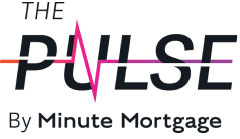10 Things Not to Do Before Applying for a Mortgage
Preparing for a positive mortgage experience starts well before the paperwork begins. We cover our top to-do tips in our First-Time Homebuyer Guide; but there are also some no-no’s to keep in mind in advance of applying for a home loan.
Some of these are likely obvious, but some maybe not so much. So before you apply for a home loan, make sure you don’t do these 10 things.
1. Forget to check your credit score
First things first: Check. Your. Credit. Score.
You want to be as financially healthy as possible before applying for a new or refinanced home loan. So check your credit score to see where you stand and look for any red flags or errors that need to be taken care of.
A credit score of 740 or higher will get you the best rates and terms. At the least, you’ll want your credit score to be in the mid-600s before considering applying for a home loan.
2. Miss payments on credit cards and other bills
This is a biggie. Lenders want to see you’re reliable and not at risk to default on your mortgage. Show them how reliable you are by having a history of on-time payments and no missed-payment red flags on your credit report.
3. Take on debt
Put your credit cards on ice. Literally, if need be. Lenders do not want to see you adding debt and hurting both your debt-to-income (DTI) and credit utilization ratios in the months preceding your application.
If you do need to make a big purchase—like absolutely needing to get a new vehicle—just be aware that it will have an impact on your DTI. The new payment on the car may reduce your buying power as it will be considered in your DTI.
4. Apply for new lines of credit
You go to a department store and they ask if you’d like to save 10% on today’s purchase by opening a line of credit with them. Doesn’t sound like a bad deal, right? What harm can putting few hundred dollars of clothes on their charge card do? A lot, actually!
This can harm you in a few ways. One, it’s more debt (see previous rule). Also, a credit check will likely be required before you’re approved for a line of credit, and that check can lower your score.
5. Close credit accounts
In addition to not opening any lines of credit, you shouldn’t close any either. Though closing a line of credit may seem harmless, or even a positive, it actually hurts you by reducing your credit utilization ratio which may lead to a decrease in credit score. Hard credit inquiries will knock your score down, too.
6. Co-sign on loans
It’s both understandable and admirable to want to help a friend or family member in need and co-sign for them on a loan. But seriously consider how reliable they are, as you’ll be partially responsible for the debt and your credit score will be negatively affected if they were to default. Additionally, that loan amount is added to your DTI.
7. Make big purchases
We recommend holding off on big purchases in the months before your mortgage application, even if you’re paying with cash and not adding debt.
You’re going to need a lot of cash on hand when buying a home. The cash spent on a big purchase could go toward a down payment or padding your savings account. And healthy savings accounts make lenders happy. Which leads to the next act to avoid…
8. Dip into your savings
Like we mentioned above, lenders want to see that you’ve got the necessary cash reserves for down payments, closing costs and more. And lenders may request to check your savings account, especially if you’re considered a higher-risk borrower.
9. Change jobs or take a leave of absence
As we’ve hopefully made clear, lenders love to see stability. This goes for employment as well as your actual finances. That’s why it’s best to hold off on major career changes until after you’ve closed on a new home or refinanced mortgage.
You’d probably be OK with a switch to a higher-paying job in the line of work you’re currently in. But you may draw the concern of lenders if you make a switch to a new career or take a decrease in pay leading up to your mortgage application.
10. Make large deposits without documentation
It’s certainly not uncommon for homebuyers to receive financial assistance from their parents or other relatives when buying a home. But you’ll want to document any of these large deposits with a gift letter so lenders know where the cash came from, and that you aren’t expected to pay that money back.
Minute Mortgage has a team of experienced loan specialists ready to answer your questions and guide you to the mortgage that’s best for you.


 6 Minute read
6 Minute read



